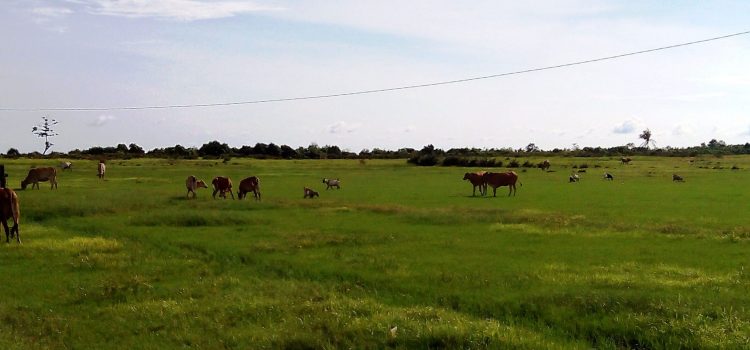
Modern science receives a new human challenge: finding the right vaccine against SARS-CoV-2. What must be understood, a vaccine functions to build immunity specifically against certain virus, unlike drugs that are designed to cure. Hence, there is a fundamental problem that must be resolved, namely improving the relation between humans and nature.
Covid-19 became the start which shocked the world in early 2020. One by one, the government in every country implemented a lockdown to anticipate the spread of this virus. Speculation arose, trying to find the main source and initial cause of SARS-CoV-2 virus which was first reported to spread in Wuhan. Until the end of 2020, the page of Covid-19 Handling Task Force released that nearly 1.8 million people died as a result of the pandemic all over the world.
Zoonosis became a new nomenclature in cross-sectional discourse, namely diseases caused by viruses or bacteria transmitted from animals to humans. This process is possible to happen due to more narrowing space for animals in the wild area as a result of the natural resource exploitation with a Baconian anthropocentric view that reduces the relationship between humans and nature.
Quoting Kompas in its 18th June 2020 edition, based on the triggering factors, zoonoses were categorized into three groups; firstly, environmental damage due to deforestation and habitat loss; secondly, cultural practices, especially the practice of exotic wildlife consumption; thirdly, intensive farming causing the breeder’s relations are very close to each other and therefore it opens up chance for the pathogens to spread.
Improving the relation between humans and nature

Modern science receives a new human challenge: finding the right vaccine against SARS-CoV-2. What must be understood, a vaccine functions to build immunity specifically against certain virus, unlike drugs that are designed to cure. Hence, there is a fundamental problem that must be resolved, namely improving the relation between humans and nature.
Nature is not an existence separated from humans. Both are alive and depend on each other: nature lives because of humans, and so do humans live because of nature. Therefore, the loss of balance in one of them causes imbalance to another one. Zoonosis is a real example, when the destruction of animal ecosystems in nature causes them to lose their habitat and be “closer” to us, and in the end badly impact human health. Pathogens in the body of bats, for example, do not have an impact due to their physical endurance. It is different when the pathogens move to humans.
It is sad to see botany and animals continue to become the victims even in times of pandemics. Kompas, reported from the page of gakkum.menlhk.go.id, mentioned that until mid-July 2020 there was forest damage disturbance from Sumatra to Papua. Illegal logging is the most dominant case, besides illegal mining and wildlife trafficking.
The new-normal adaptation should not be understood simply by wearing a mask, washing hands, and maintaining distance. Furthermore, by adopting a new habit of seeing nature as us with “outside” manifestation, so that we have the obligation to keep, protect and preserve it as we treat ourselves.
The issuance of PermenLHK No. 83 of 2016 regarding Social Forestry opens legal opportunities for communities around forests to improve the economy while still maintaining natural preservation. There are several schemes that can be used, they are: village forests, community forests, community plantation forests, customary forests, and forestry partnerships. The challenge is to produce sustainable innovations and creations, such as nature tourism, hydropower plants, and agroforestry development based on local characteristics.
The schemes can at least become a trigger in realizing new governance on sustainable and equitable forests and land for the good of nature in the future. We have experienced good things during the lockdown period; The air quality which was much better than before due to reduced pollution. Imagine if the good quality of air can be maintained with better land and forest governance, not because of Covid-19.
Mohammad Reza
Gemawan Activist
Released on an opinion rubric of Pontianak Post Newspaper on Saturday, 16th January 2021
